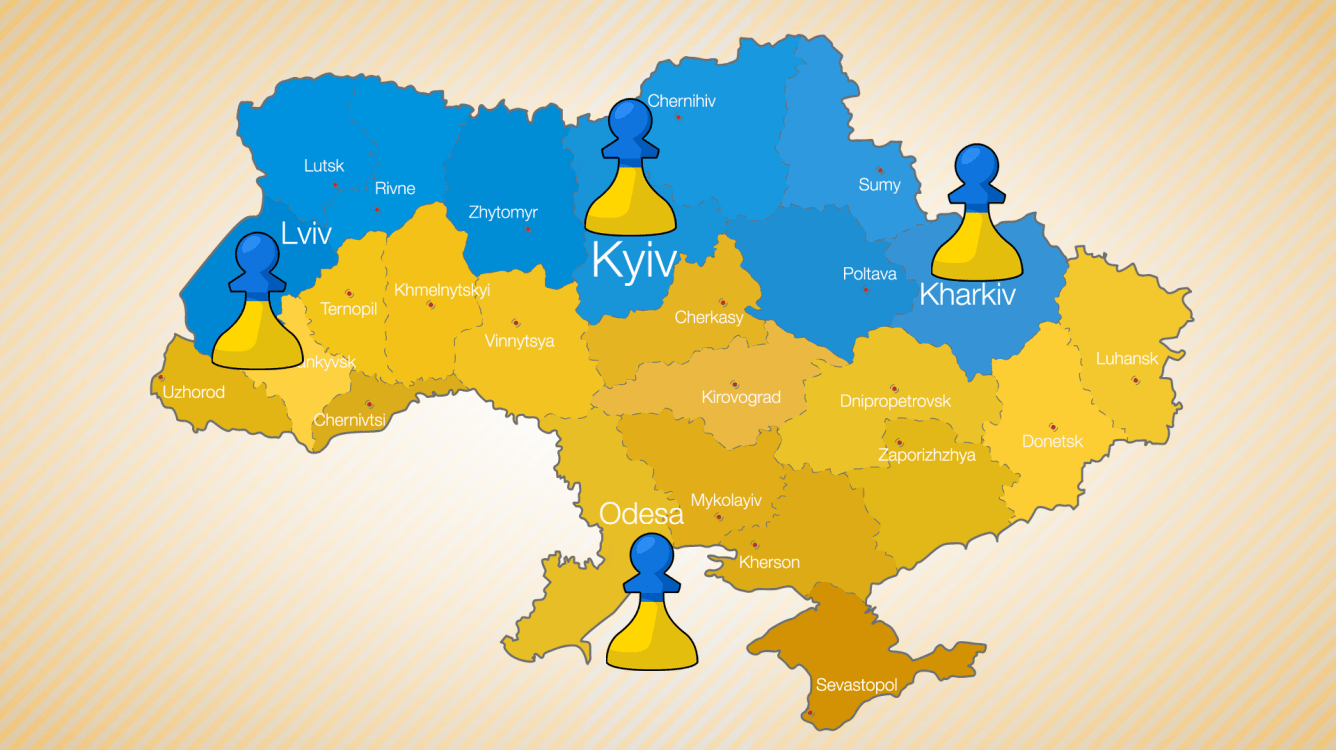
A Year Of War For Ukrainian Chess Players
One year ago, Russia invaded Ukraine and started a war that has been going on much longer than expected and that is probably not ending soon. In March of 2022, Chess.com spoke to several Ukrainian chess players about how the terrible developments in their country affected their lives and families. Today, we hear from them again.
See also: Ukrainian Chess Players In Times Of War
Those wishing to support Ukraine directly may consider these organizations that have a strong track record of providing effective relief in times of crisis and make it easy to donate:
Kyiv
On Thursday, February 24, 2022, 19-year-old GM Kirill Shevchenko and his family woke up from the sounds of numerous explosions not far from them. They took their documents and went to the basement, where they stayed all day and tried to follow the news. The next day, fragments of a rocket hit a neighbor's house 500 meters away, opposite the school of Kirill's 11-year-old brother. The family had to go back to the shelter again and thereupon decided to leave Kyiv. "It was a really tough decision," said Shevchenko.
This was how last year's article started and how a terrible year for Ukraine began for the Shevchenko family. Now, in 2023, things have turned out well for Kirill. At 20, he currently lives in Bucharest, Romania, and has started playing under the Romanian flag. This week, he is active in the Romanian championship.
Shevchenko has been helped by the Romanian Chess Federation and by Sacha Dragic, the CEO of Superbet Romania. He is strongly supporting chess in Romania with top-level events that are part of the Grand Chess Tour and has earlier helped GM Richard Rapport to switch from Hungary to Romania.
"I am glad I found a place here where I can invite my parents, to take them away from this terrible situation," said Shevchenko. It helps that it is not too far away from Ukraine: Bucharest is about 750 km (464 miles) from Kyiv.
Early in the war, Shevchenko moved to Vinnytsa, about 260 km (162 miles) west of Kyiv, to stay at the place of his grandparents. From there, he helped organize charity streams. In one of them, also with the help of Chess.com, GM Hikaru Nakamura held a 12-hour fundraiser stream that raised over $130,000.
But, as a young and promising chess player, Shevchenko needed to go out and play. His first tournament abroad, as it was for many Ukrainian top players, was the European Individual Championship held in March-April in Slovenia. The general rule is that all men between 18 and 60 years old cannot leave the country, but the Ukrainian Sports Ministry allowed them to play.
Shevchenko then played two games in the German league, and thanks to the help of GM Michael Prusikin, he could stay in Germany for a few months. As he continued to travel through Europe, he played in the Superbet Rapid & Blitz in Warsaw, Poland; the Biel Masters in Switzerland; the Olympiad in Chennai, India; the team championships of Turkey, Poland, and Croatia; the European Club Cup in Austria, and the World Teams in Jerusalem, Israel.
As the war settled, his mother, brother, and grandmother returned to Kyiv. Luckily, their house was still fine, but Kirill is still worried. New waves of attack might come, and he wants to bring them to Bucharest again, to safety.
Shevchenko's invitation to start playing for Romania came in the fall of 2022, around the time of a new wave of Russian attacks on Kyiv and other cities and energy plants. "I decided to accept the invitation. It would give me more chances to grow as a player and as a human. I see how they want to develop chess in their country, which is very inspiring. They are creating a big community and making chess popular in Romania. I am part of this staff, and I am glad that there is a good foundation for chess. They are also fully supportive of Ukraine; the Superbet organization has sent about $1.5 million to Ukraine through charities."
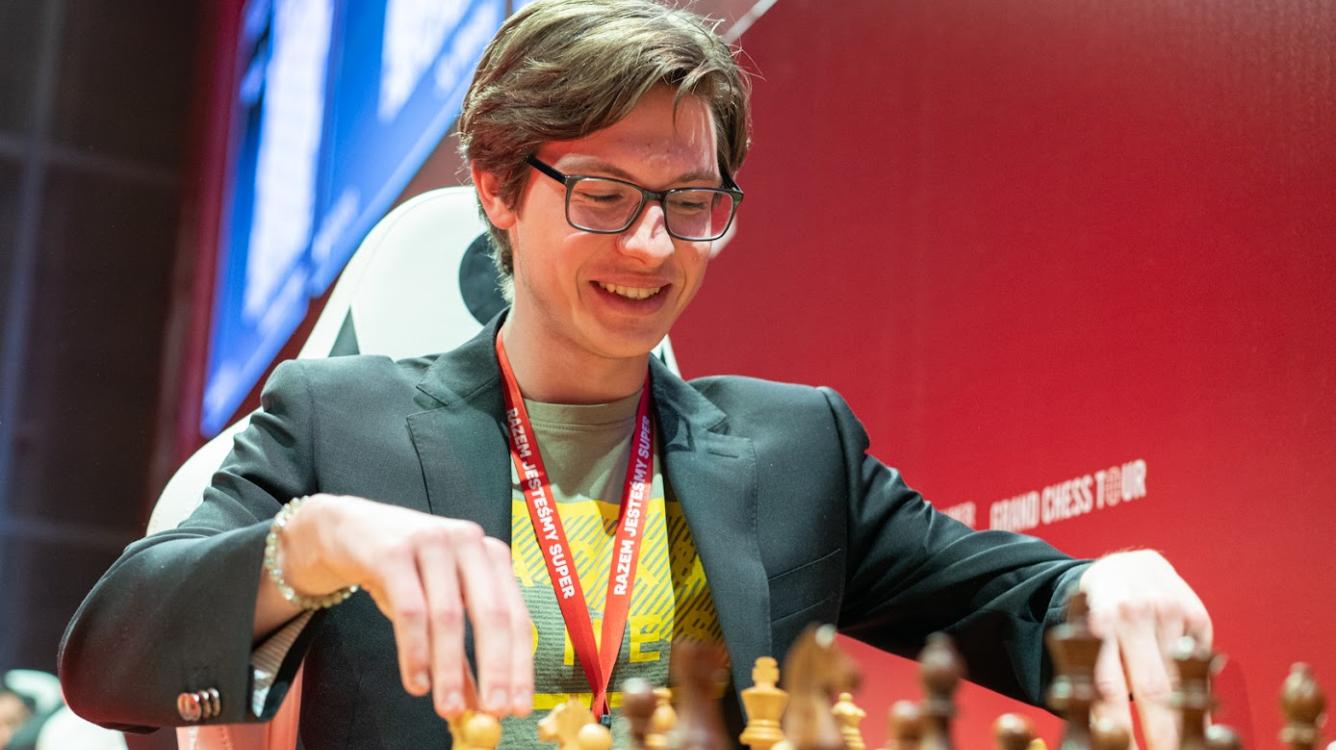
45-year-old Oleksandr Matlak is the Executive Director of the Kyiv Chess Federation. Early in the war, his wife, his two sons (then six and 11 years old), and his mother-in-law moved to the western region, but he decided to stay in the capital.
Apart from his chess activities, Matlak was involved in coordination activities for the territorial defense of his country and in working with volunteers to provide food and clothing to people in need. Throughout the year, he has also been doing online coaching. "Most of my students are Ukrainian, but more than 50 percent of them have left the country and are now elsewhere in Europe, the U.S., or Canada."
A year later, Matlak's wife and two sons are living in Wells, England. His sons go to school; his wife found a social job connected to Ukrainian refugees. He hasn't seen them since last June. "Ideally, I would like to visit them, or they will come to Ukraine during the spring school holiday," said Matlak. "It depends on the security, the intensity of the rocket attacks."
The winter has been tough in Kyiv, especially due to the Russian attacks on Ukraine's power plants. This has led to serious problems with the electricity supply. "In January, we had three days without electricity, internet, or mobile. Since then, many power generators, heaters, power banks, and Star Links stations have been delivered. So we got used to surviving even under such circumstances. This week, we actually had five days without a power shortage, so it's going back to normal."
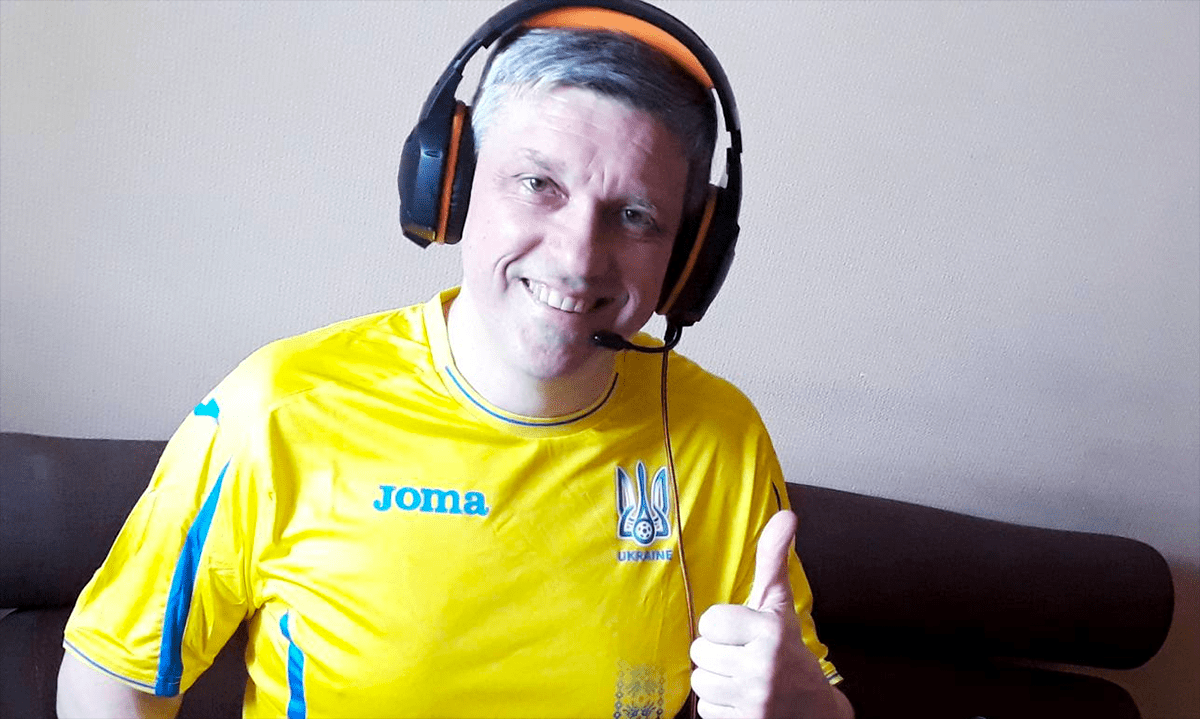
Kharkiv
39-year-old GM Pavel Eljanov, a two-time Olympic team gold medal winner, is from Kharkiv, the second-largest city located in the northeast of the country. He currently resides in Sharjah, UAE, where he has been coaching the country's number-one grandmaster Saleh Salem.
"That story actually begins on the first day of the war," said Eljanov. "The contract started on March 1, and I had a flight on February 24 from Kharkiv. But I could not fly and got stuck in Ukraine for some time."
As Kharkiv faced heavy bombing, about half of the three-million population left the city in the first few weeks. Eljanov's mother took his daughter as they went to Lviv, the largest city in the western part of the country, located about 70 kilometers from the Polish border. "At some point, their train was in Kyiv at night, and a missile struck very close to the train. This was quite stressful for me. I followed the news and checked the train schedule online. But they arrived in Lviv after all."
While Eljanov was still in Ukraine, he helped raise donations, like Shevchenko. "I collected about $12,000 and added more or less the same amount myself," he said. "We made about $25,000 in total."
Being defeated lately on the battlefield russia started massive shelling of infrastructure. We will win anyway 🇺🇦 but you can make a contribution and help our chessplayers who took up arms https://t.co/FqP0ISnpdf Among our warriors is GM Igor Kovalenko from top-100.
— Pavel Eljanov (@Eljanov) October 10, 2022
Kharkiv itself was never fully occupied, but there were lots of fights. In May 2022, the Russians retreated from the surrounding villages; the city itself is located about 40 km (25 miles) from the Russian border.
"Now it's relatively quiet but not fully safe," said Eljanov. "Last week, there were some strikes. Russia still has some old missiles, the S-300, they have thousands of them, and they're cheap. They are not precise, but they can strike an almost unlimited number of times. And they are quite close. But it it is not as much as the first few weeks when there were daily airstrikes."
Eljanov owns an apartment in a big residential building, which luckily still stands. His mother's apartment is also still intact. "I would love to return to the homeland, but I have no idea; there is no forecast. Time is needed to restore everything."
After about two weeks, Eljanov reached Sharjah, where his daughter lives with him. His ex-wife stays in Kharkiv because her husband is a commander of a battalion of the city's territorial defense.
Besides his coaching work, Eljanov managed to play a bit of chess as well in the last year. He played in the German and Spanish leagues and won a tournament in Dortmund, even getting his rating back to over 2700.
As his one-year contract in the UAE is about to end, Eljanov is now looking for options. He wants to move to Europe and hopes to play and work there. Shortly after Chess.com spoke to him, the English Chess Federation announced that it is trying to find hosts for Eljanov and his family.
Sponsoring Ukrainian refugees - https://t.co/caScdHjERZ
— ECF (@ecfchess) February 21, 2023
Like Eljanov, 42-year-old GM Alexander Moiseenko is from Kharkiv and also finds himself abroad a year after the start of the war. He moved to Kazakhstan in May 2022. Currently, he works there as one of the trainers of the top Kazakh women's players.
Moiseenko initially stayed in Kharkiv together with his 81-year-old father, but 10 days into the war, he moved to the Poltava region, a bit more to the west, where he found a safer place together with his sister. While still there, he tried to help, for example by overseeing how many people left in apartments were in need of medical attention. His father stayed in Kremenchuk for a few months with friends but returned to Kharkiv as soon as it was possible again.
Also for Moiseenko, the European Championship was the first moment to be back behind the chessboard. "I took a bus to Budapest, then a bus to Slovenia. It was OK, but there was also too much stress so it was hard to play."
As things somewhat calmed down, about 60 percent of the people who left Kharkiv came back. The situation is much better than in March, but it's not completely safe, either. "A few weeks ago, the university was attacked," said Moiseenko. "We used to have a huge chess club there, where I played every week as a kid. Now, three of the seven floors are completely destroyed."
Although he would like to return to Kharkiv, for now life is OK for Moiseenko in Kazakhstan. His mother is Kazakh and he has relatives there. "I was in Kazakhstan before many times and had chess connections. I decided to go there, at least for some time. Then I got invited to train the women's team by my good friend GM Darmen Sadvakasov. We went to the Olympiad in India without two strong players but still finished fifth."
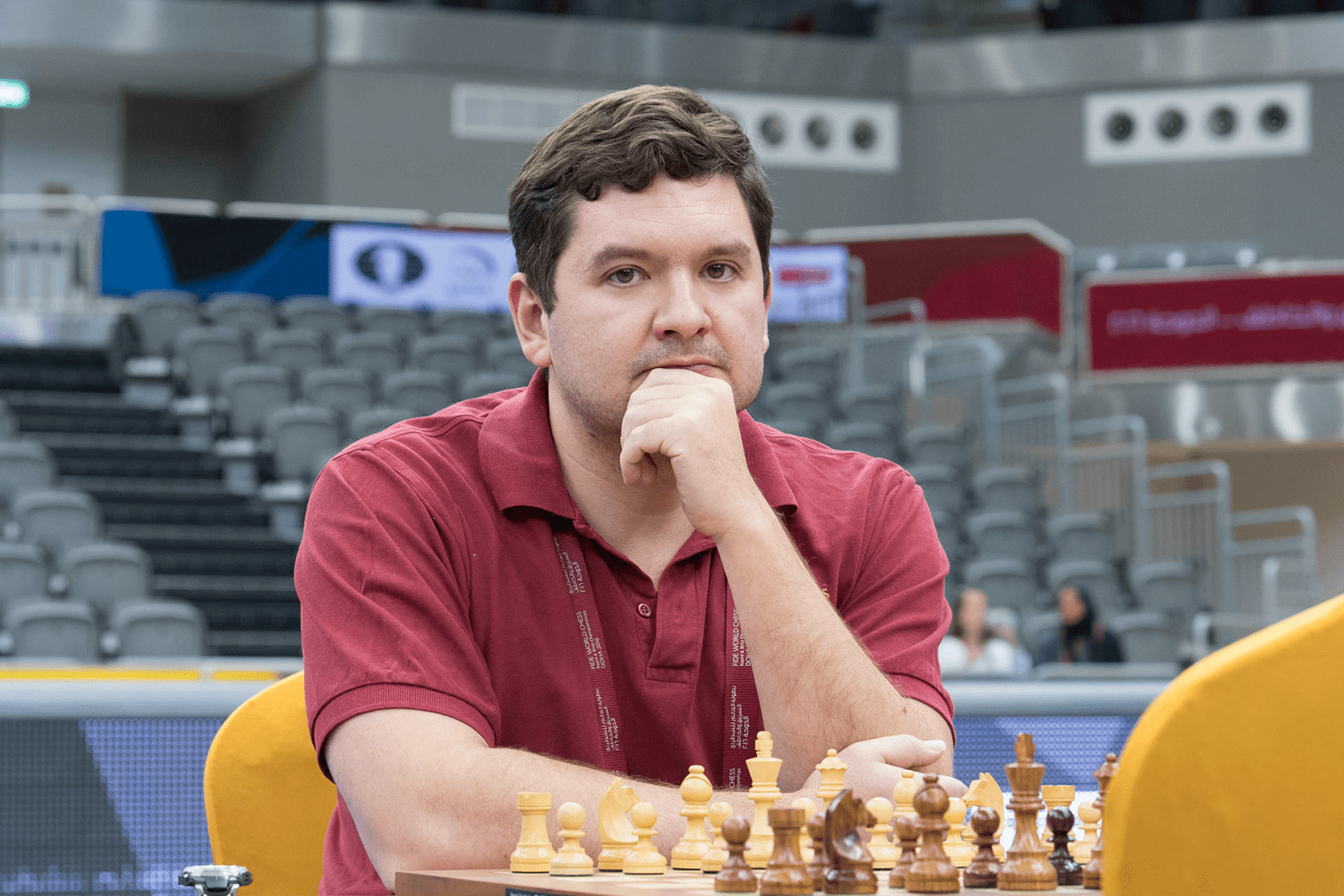
Odessa
Chess.com didn't get to speak to 43-year-old GM Natalia Zhukova this time, but her recent interview in New in Chess Magazine is highly recommended. As a woman, she could have left the country whenever she wanted, but she decided to stay.
Over the last year, she has been working as a member of the City Council for President Zelenskyy's party, Servant of the People. The two-time European women’s champion and Olympic team gold winner also runs a charity for Ukrainian chess players that are affected by the war.
A striking quote from the interview is about something that other players in this article also said: it is not possible to truly understand the war as long as you're not in it. Zhukova: "It's incomprehensible. It's a real war, of the kind that we've only seen in movies. When I visited Europe, I understood that there, people have picked up life again. Yes, they do support us and help us. But no matter how much someone reads the news... If you're not living here, you can't understand how all-encompassing the war is, or what it's like that this is going for almost a year already."
A happier development for Zhukova last year was that she married GM Alexander Onischuk, who emigrated to the United States in 2001. The two have known each other for 28 years and met in May 2022 at a Grand Chess Tour event in Bucharest. In December, Onischuk joined Zhukova in Odessa.
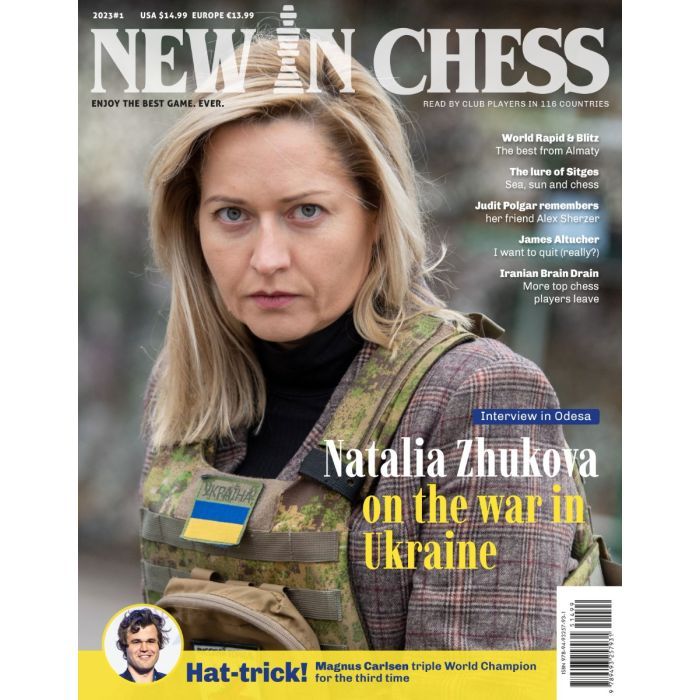
Another grandmaster who has been active in the civil sector in Odessa is 52-year-old GM Mikhail Golubev. Known in the west for authoring several chess books in the early 2000s, he became politically active at some point, and from 2013, he was part of the Euromaidan movement. He is now mostly working as a chess coach online.
He started our interview by mentioning that at the moment, there is a popular joke these days in Ukrainian social media: Tell me what helped you not to go crazy last year? Nothing helped; I went crazy!
According to Golubev, this joke reflects the mood of the Ukrainians, who are fighting, and who are having a rough time. It's difficult for them, but humor helps. "I personally did not suffer more than many Ukrainians and less than millions of Ukrainians so I am not in a position to complain," he said.
Golubev has stayed in Odessa the whole year except for when he participated in the Anfield Cup, a two-day rapid tournament in September 2022 in Kyiv. It was held in the Anfield Pub, a cafe for Ukrainian fans of FC Liverpool, and for Golubev, it was the first time he played in Kyiv in 25 years.
A TV report of the pub tournament.
Golubev said that especially the early phase of the war was very difficult. "At the beginning, it was tense. Now I can tell that, indeed, we were shocked, even the people who were somehow prepared for it. For the first one and a half months, there was no time for prolonged reflections. Planning for more than two days was not possible. There were attacks from the air and missiles. We were expecting all kinds of attacks, for example, via the Black Sea. What happened to Kherson could happen to us. In our family, we often watch movies together but I couldn't watch anything for one and a half months, and my wife for more than half a year."
According to Golubev, things have changed "from an extreme situation to a marathon war." He has resumed his online coaching but also his duties in the regional chess federation and his help of volunteers. "People who are part interested in helping the Odessa region can contact me on social media," he said. "I do what I can do."
Lviv
While his wife and daughter fled to Poland early in the war, 36-year-old GM Andrei Volokitin initially stayed in Lviv. As the largest city in the west of the country, it has been relatively safe thanks to its proximity to Poland.
"In general, there are no safe places at the moment," said Volokitin. A day before we spoke to him, there had been a new attack on infrastructure in the Lviv region.
Volokitin also played in the European Championship in Slovenia, and after that, in April 2022, he joined his family in Poland. They are in a small mountain town not far from the Ukrainian border. His parents still live in Ukraine, in a dacha about 15 km (9.3 miles) from Lviv.
"Life in Ukraine and life in Europe are completely different; these are two different worlds," said Volokitin. "There's no war here; I don't feel a war in the air. Sometimes my wife goes back to Ukraine, and she knows very well the problems there, for example, with the electricity."
Volokitin could play quite a bit in the German and Hungarian leagues last year and also at the Chennai Olympiad, the European Club Cup, and the World Team Championship. "In the first half of the year, it was very hard to play chess psychologically, and I played quite badly. We also had to move to different places six or seven times, but after we found a long-term apartment, I started to play better." At the European Club Cup, he scored a fantastic 6.5/7 and a 2931 performance rating.
"My daughter is four now and attends kindergarten," said Volokitin. "She already speaks Polish fluently. We got very fast permission to live in Poland. In general, there has been a very big support for Ukraine in Poland. But still, we would like to return to Ukraine at some point; this remains our dream."
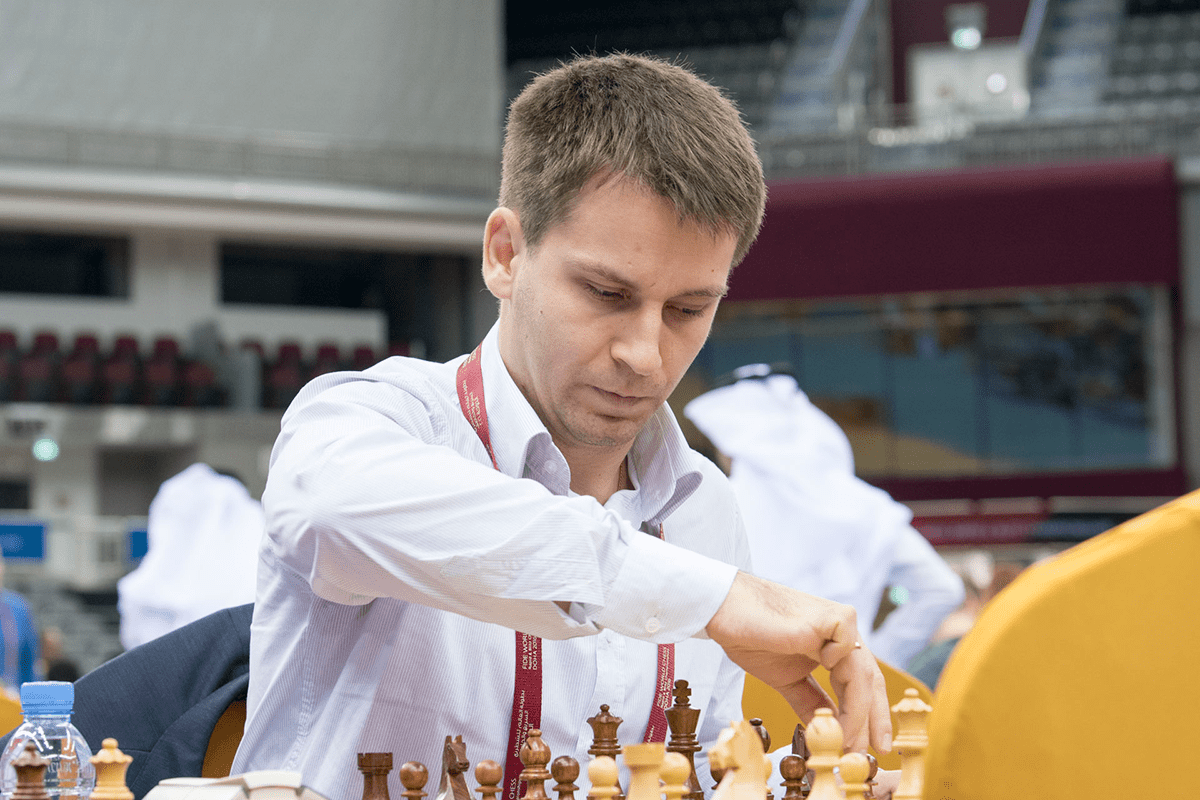
When we called last year, 38-year-old WGM Myroslava Hrabinska stayed with her daughter and son at her sister's place in Germany, close to Frankfurt. Her husband, the 49-year-old IM Vladimir Grabinsky [Chess.com chose to follow FIDE's spelling of their names], stayed in Lviv. This time, the Skype call was with both Myroslava and Vladimir, who were together in Lviv.
After three months, when Kyiv and other regions were liberated and it turned out that the Ukrainian army was fighting back successfully, Myroslava and the kids returned to Lviv—even though life is tougher than in Germany. "The kids got homesick," said Hrabinska. "In Lviv, at least we know the situation."
As the Ukrainians adjust to a situation where something basic as electricity, is not a certainty, life goes on in Lviv. The air raid signals are still there, sometimes not for a few days, and sometimes several times a day. When it does, the family must hide in their bathroom because they don't have a better shelter nearby. Due to its proximity to the airport, the region is a bit more dangerous than elsewhere in the city.
Chess goes on as well. Grabinsky works daily at his chess school, which has about a hundred kids. Most of them come two or three times a week. The level is quite high; one group is of "candidate master" level (roughly 2100-2300), and one is of "first category" level (roughly 1900-2100). Grabinsky: "About 10-15 percent of the kids have left the country. Those numbers are lower than in Kyiv as it's safer here."
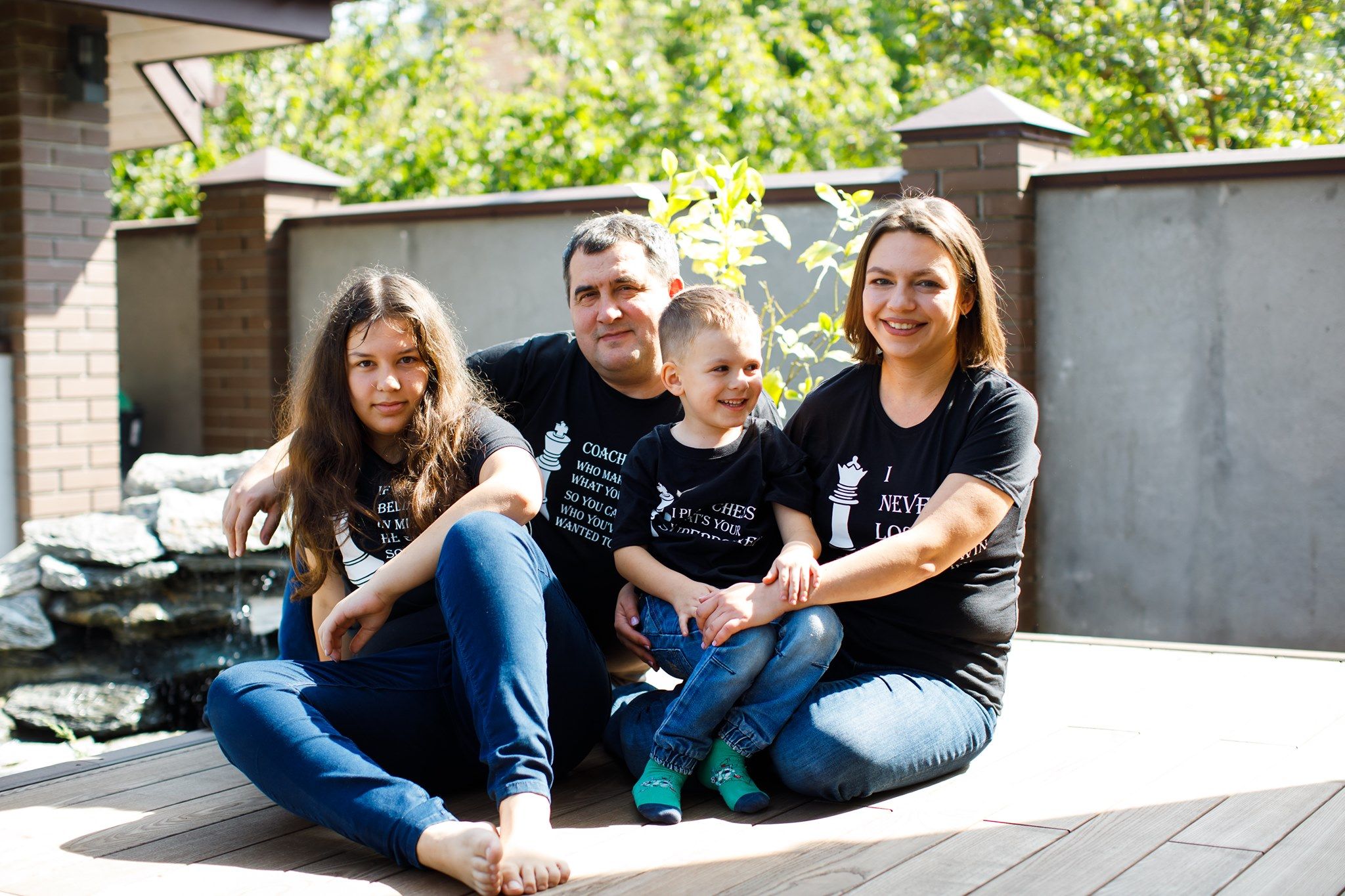
FIDE and the war
For Ukrainian players, the way FIDE has acted during this year of war has been disappointing. Eljanov goes as far as calling it "a very big mess," and he explains: "It's very clear that FIDE is more pro-Russian than I thought before. At least they disqualified GM Sergey Karjakin at some point, but it was not enough."
Eljanov is referring to Karjakin's six-month ban (between March 21 and September 21, 2022) from participating as a player in any FIDE-rated chess competition because of his pro-Putin and pro-war statements on social media.
Golubev: "I am quite seriously disappointed that after Karjakin's ban, it was not prolonged. During his ban he did much worse things in the direction of war propaganda than he did before. He deserves to be banned for life."
Four days after the war broke out, the International Olympic Committee (IOC) recommended "that international sports federations and sports event organizers not invite or allow the participation of Russian and Belarusian athletes and officials in international competitions." Soon after, the International Chess Federation (FIDE) banned Russia and Belarus from official team competitions but continued to allow individual players to play under the FIDE flag, for which it introduced a simplified procedure.
Earlier this week, FIDE announced that it will waive transfer and compensation fees for Russian players who want to switch to a European chess federation when the Chess Federation of Russia leaves the European Chess Union and joins the Asian Chess Federation. Most of the Ukrainian players Chess.com spoke to think this is fine, especially for the Russian players who have left their country, have expressed to be against the war, and are playing under the FIDE flag.
One detail from the FIDE Council's decision bugs the Ukrainians, though. It is the following:
"In the event that the Players decide to leave the national federation to which they transferred under the above procedure, such a federation is not entitled to receive any compensation fee. Also, these Players can transfer to CFR later with no fees to be paid to their previous national federation or FIDE."
Grabinsky: "If a player who doesn't want to be together with Putin and his regime, and wants to go to another country, I completely accept this and agree with this. If FIDE is not making money from such a transfer, that's also normal. But why can they also go back without payment? Now they can just use the situation, participate in all the tournaments they want, and then go back and play for Russia again. This way Russian players get even more privileges."
Eljanov: "In general, it's very clear that if they want to play in Europe and want to travel, first of all, the minimum condition is to switch to the FIDE flag, and they have to officially sign a letter that they are anti-war and not supporting the Russian government. Sure, this may lead to some trouble for them but you have to choose a side now, this is the biggest European war since World War II. It's not about a game of chess, it's about human lives."
See also:
- FIDE To Waive Transfer Fees For Russian Players Switching To Europe
- Russian Chess Federation Applies For Asia Switch As Row With Europe Deepens
- Chess Returns To Kyiv, Where The War Is Never Far Away
- Russian Grandmasters Leave Russia: 'I Have No Sympathy For This War'
- Karjakin Banned For 6 Months, Misses Out On Candidates
- Dvorkovich In Tight Spot As FIDE President
- Top Tournaments Ban Karjakin; ECU Suspends Belarusian, Russian Federations
- 'Stop the war.' 44 Top Russian Players Publish Open Letter To Putin
- FIDE Condemns Military Action; Takes Measures Against Russia, Belarus
- FIDE Olympiad Won't Take Place In Russia; Ukrainian Federation Asks For Russian Ban
- In Support Of Ukraine: Chess.com's stance on the issue


